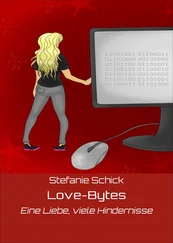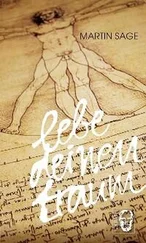This project into which he'd poured all his youthful passion, only to see it miscarry, was known as the Loop.
Hideyuki presented a new question to Kaoru, forcefully steering the conversation away from the Loop.
"So do you think life emerged by chance or by necessity? Which side are you on?"
"The only answer I can give to that question is, 'I don't know'."
It was all he could say. He couldn't affirm the necessity argument just because he himself existed. In the absence of confirmed life anywhere else, it was possible that life on earth was an utterly random gift, unique in the universe.
"I'm asking you what you think."
"But Dad, aren't you always saying that it's important to recognize what modern science doesn't know? To be willing to say 'I don't know'?"
Hideyuki chuckled at the question. A look at his face revealed the alcohol taking effect. The number of empties was up to six.
"You don't have to tell me that. Think of this as a game if you have to. We're in the world of play. I want to know what your gut tells you, that's all."
Machiko had gone into the kitchen to fry up some noodles; now she stopped what she was doing and fixed her gaze on Kaoru, a gleam in her eye.
Kaoru thought about himself. Things like the emergence of life and the universe were beyond the reach of his imagination, when he got right down to it. It was better to take the emergence of one individual as an example, and work up from there.
First and foremost, what about the inception of his own life? When was that? When he'd crawled out of his mother's womb and had his umbilical cord cut? Or when the egg, after insemination in the fallopian tube, had been safely embedded in the wall of the womb?
If he was going to talk about inception, then he figured he should probably take insemination as the first step. His nervous system had taken shape by around three weeks from insemination.
Now, he thought, just suppose that a foetus of that age had consciousness, the ability to think. To that foetus, the mother's womb would be the whole universe. Why am I here, the foetus asks. Immersed in amniotic fluid, he begins to wonder about the mechanism of conception. But as he knows nothing of the world outside the womb, he can't even imagine that his own conception was preceded by reproductive acts. All he can do is make guesses based on evidence he finds within the womb.
So he begins to think of the amniotic fluid itself as his parent-a natural conclusion. He begins to think of the amniotic fluid as the primordial soup covering the primeval earth, churning until twenty kinds of amino acid join hands in brotherhood to make life enabling proteins; these then begin to replicate themselves… The probability of which is, of course, the same as the monkey at the typewriter, banging keys at random, coming up with a passage from Shakespeare.
A probability so low that even with trillions of monkeys banging away for trillions of years, it was still virtually nil. And if a passage from Shakespeare should appear anyway? Would people still call it a coincidence? Of course not- they'd suspect some kind of fix. A man in a monkey suit sitting at one of the typewriters, or an intelligent monkey…
But the foetus immersed in amniotic fluid thinks his conception was by chance-he can't make his imagination comprehend the mechanism behind it. And that's because he doesn't know about the world outside.
Only when he crawls out of the birth canal after roughly thirty-six weeks in the womb does he for the first time see the outside of the mother who bore him. Only after growing and increasing in knowledge yet further does he come to understand with exactness why and how he was conceived and born. As long as we're inside the womb-inside the universe-we can't understand the way it works. Our powers of apprehension are blacked out on that point. They have to be.
Kaoru decided to apply the example of the foetus in its universe-the womb-to the question of life on earth and the universe it occupied.
In most cases, the womb comes pre-equipped with everything necessary to nurture a foetus after insemination. But does it always host a foetus? Of course not. The phenomenon of insemination itself is controlled largely by chance. And many women choose not to have children.
And even if a woman has a couple of children, the length of time in which her womb holds a foetus is still less than two years total. In other words, equipped for a foetus though it may be, the womb is usually unoccupied.
Kaoru decided to take a step back and think about the universe again. Given that we are actually existing within it, it seems reasonable to say that the universe is equipped with what is necessary to sustain life. In which case, life arose out of necessity, right? But, no, remember the womb: it may be capable of sustaining the life of a foetus, but it's usually without one. So life arose by chance, then? The universe is not constantly filled with life, indeed, a universe that does not beget life may indeed be more natural.
In the end, Kaoru couldn't come up with an answer after all.
But there was Hideyuki, drinking his beer and expecting a reply.
"Maybe we're the only life in the universe after all," said Kaoru.
Hideyuki grunted. "That's what your gut tells you?"
Hideyuki stared at his son fascinatedly, then shifted his gaze to his wife.
Machiko was sleeping peacefully, her head pillowed on her hands on the table.
"Hey, go get a blanket for Machi, will ya?"
"Okay." He immediately went to the bedroom and brought back a blanket, which he handed to Hideyuki. Hideyuki draped it over Machiko's shoulders and smiled at her sleeping face before turning back to his son.
The eastern sky had begun to whiten without them noticing, and the temperature of the room had dropped. Night in the Futami household was over, and it was just about time to sleep.
Hideyuki's eyes as he drank the last of the stale beer were hollow.
Kaoru waited until his father was finished drinking, then said, "Hey, Dad. Can I ask you a favour?"
"What?"
Kaoru lay the gravitational anomaly map in front of his father again. "What do you think of this?"
Kaoru's pinky was pointing at a particular spot on the map, a desert region, the so-called Four Corners area of the western North American continent, where the states of Arizona, New Mexico, Utah, and Colorado met.
"What about it?" Hideyuki brought his eyes close to the map, blinking.
"Look closely at it. Now take another look at the gravitational anomaly figures for this area."
Hideyuki rubbed his eyes again and again, as the numbers swam in his tired eyes.
"Hmm."
"See, the space between the contour lines gets smaller and smaller the closer they get to this point."
"That's what it looks like."
"That means an extreme gravitational anomaly."
"I see. The negative values are quite large here."
"I think there has to be something there, geologically speaking. It's like there's something deep under the earth's surface there with extremely little mass."
Kaoru took a ballpoint pen and made an X where the four states met. He didn't have a gravitational figure for that exact point, but the contour lines surrounding it certainly pointed to a spot with particularly low gravity.
For a while, Kaoru and Hideyuki looked at the map in silence. Then Machiko raised her head a little and broke in, drowsily, "I'm sure there's nothing there, dear."
Evidently she'd been listening to their conversation the whole time, only pretending to be asleep.
"I didn't think you were awake."
His mother's words were provocative. Kaoru tried to imagine a space filled with nothingness deep beneath the desert. If the earth there concealed a huge cavity, it could easily explain the extreme gravitational anomaly.
Читать дальше
Конец ознакомительного отрывка
Купить книгу
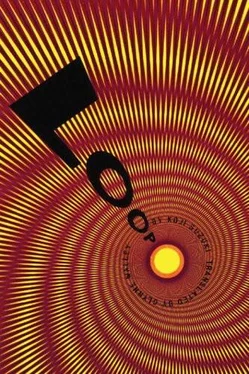
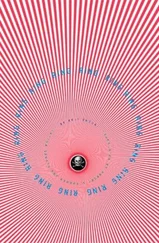

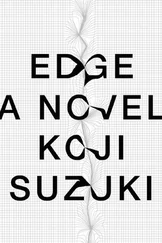
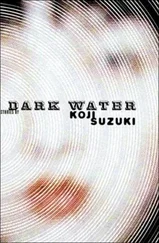
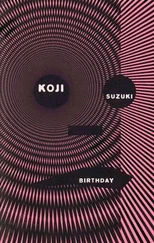
![Yuriy Ktitorov - Sasha [Love]. Part 1](/books/459553/yuriy-ktitorov-sasha-love-part-1-thumb.webp)
